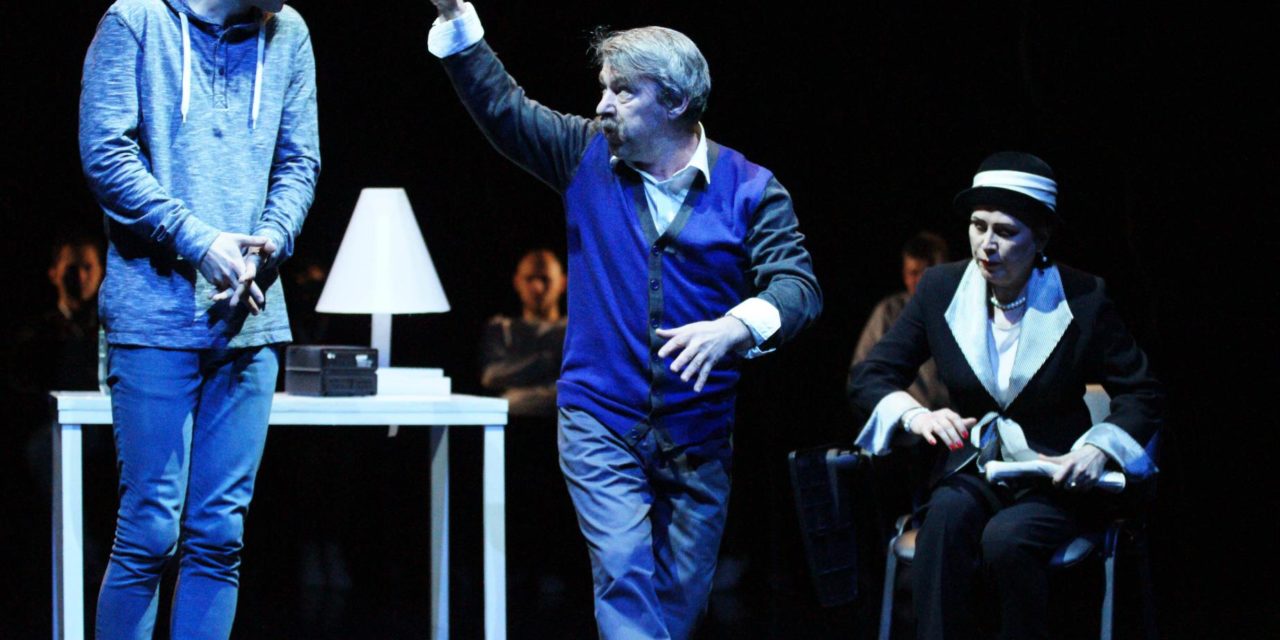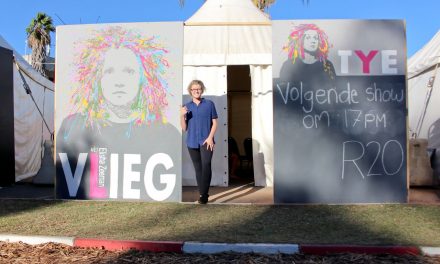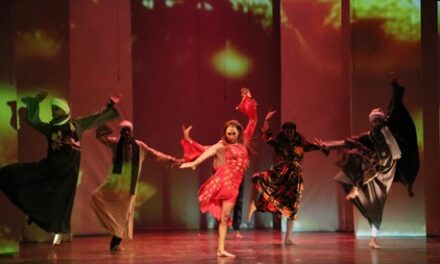Out of the Blue, currently playing at Moscow’s Satirikon Theater, is restricted to ages 21 and up. Written by Vladimir Zaytsev, the drama follows a gay teenager’s struggle to come out to his friends and family, and to survive the series of remedies that they prescribe to “fix” him. For audiences in Russia and abroad, the play offers a rare chance to experience the stories of Russia’s LGBTQ youth.
Rather than any graphic content (sexual or otherwise), the play’s age restriction is a consequence of its protagonist’s sexual orientation. A 2013 Russian law forbids the dissemination of “homosexual propaganda” to minors. (The law is notoriously vague: In various recent crackdowns, gay pride marches, LGBT resource centers, and an impromptu memorial to victims of the Pulse nightclub shooting have all been punished as “propaganda.”)
In the culture of state-enforced silence exemplified by the law, Out of the Blue maintains a rare public space for gay narrative–especially one centered on youth. The show answers prejudice with both humor and pathos. In the comic first two acts, the protagonist (called only “The Boy”) faces a series of home-cooked remedies: exposure to “the power of art,” a visit from a female prostitute hired by his father, and an outing to an exorcist. In the third act, things get more serious: the boy’s parents abandon him at a clinic for heroin addicts. Titled Все оттенки голубого in Russian, the play’s title literally translates to “Every Shade of Blue”—a play on the coded use of “blue” to refer to homosexuals in Russia.
Based on a true story, the play dramatizes attitudes and acts widespread in contemporary Russia. Satirikon artistic director Konstantin Raikin (who also directed the play’s premiere production) said in an interview that “It’s a very Russian play. Audiences… recognize a lot: the attitudes, and the problems the characters are going through…which nobody is really talking about.”
International observatory organizations have noted that this silence sometimes proves lethal; a study by Human Rights Watch indicates that hate violence against LGBT people often goes unprosecuted in Russia.
Perhaps signaling a willingness to listen, however, the show has proved popular with Moscow audiences: since opening in June 2015, it has remained in the prestigious Satirikon’s repertory, and productions continue to sell out.
That is not to say, however, that discussions opened by Out of the Blue have been entirely positive. Vitaly Milonov, a representative in St. Petersburg’s Legislative Assembly and the Propaganda Bill’s original champion, has condemned the play, stating, “Raikin is staging a provocation against the healthy values of our people, the institution of the family, of childhood, and trying to replace them with vague notions of sexual promiscuity.”
When the production toured to St. Petersburg last February, authorities announced that a bomb threat had been received. Half an hour into the first act, the performance was halted, and the full house of 500 audience members was evacuated for a search of the premises.
Posting on Facebook after the show, cast member Julia Melnikova wrote “Audience members and actors stood waiting in the street for an hour. Nobody left.” After police and fire department personnel deemed the building safe, the performance resumed and concluded with a standing ovation.
Right-wing activists have also targeted the production. Leaflets distributed outside the theater by right-wing groups read “Do not succumb to Raikin’s provocations!!! Remember, pederasts are not born naturally–that is an LGBT lie! Homosexuality is a curable psychological illness! The play that you have come to see is an attempt to justify all these abominations!!! Raikin wants your children to become pederasts!”
And since the raid in St. Petersburg, the show’s exposure to audiences beyond Moscow’s theater crowds has been curtailed. Though Satirikon productions tour widely, no Russian theater outside Moscow has agreed to host the show. “The production is practically untouchable,” Raikin said. “Nobody will take it on tour.”
Outside Russia, however, a new English-language translation brings the play to international audiences. The translation, by Tatyana Khaikin and myself, premiered in June 2016 at Chicago’s Organic Theatre (directed by Alexander Gelman), and has since been produced at Northern Illinois University (October 2016).
Together, the production in Moscow and the English-language translation offer a rare opportunity to engage, and honor, LGBT voices from within Russia–and to tell a tale of tolerance from a political climate where such stories can be criminal.
For more information about the English-language translation, please contact the author.
This post was written by the author in their personal capacity.The opinions expressed in this article are the author’s own and do not reflect the view of The Theatre Times, their staff or collaborators.
This post was written by Robert Duffley.
The views expressed here belong to the author and do not necessarily reflect our views and opinions.


















